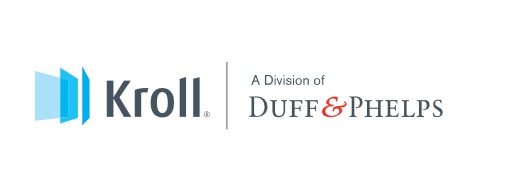22 November, 2018
This year’s Global Fraud & Risk Report survey found that the incidence of bribery and corruption had increased from 15% in 2016 to 21% this year, moving from 10th place to 5th place on the list of types of fraud experienced. Looking back further to the 2015 survey results, we can see that reports of bribery and corruption have almost doubled over the last two years, increasing from 11%.
Bribery and corruption seems to be on the rise, but companies are also getting better at detecting it. And, from a regulatory perspective, governments around the world are stepping up to tackle the issue.
Europe, the Middle East, and Africa
Several European countries, including France, Germany, Ireland, and Slovakia, have recently introduced, or proposed to establish, new anti-bribery and corruption laws.
In the UK, the past year has seen significant progress by the Serious Fraud Office (“SFO”) in successfully using the Bribery Act to investigate and prosecute multiple cases. Of particular note is the use of U.S.-styled deferred prosecution agreements (“DPAs”) in several high-profile cases. One in particular that involved a major engineering firm, which had to be approved under the supervision of a judge, marked the culmination of a four-year investigation into bribery and corruption across seven jurisdictions including Indonesia, Thailand, India, Russia, and Nigeria. The corporation’s UK settlement amounted to GBP 497 million, with separate agreements with the United States totaling USD 170 million and Brazil for USD 25 million.
The focus on anti-bribery and corruption prosecutions by the SFO demonstrates that both small/medium size enterprises and large corporates are under the spotlight and, in many situations, bribery by UK corporates is taking place overseas. As a result, corporates are placing renewed focus on developing robust compliance systems to assess bribery risks across their global operations, which is directly affecting investment decisions in developing markets.
Further developments are afoot in the UK with the forthcoming Criminal Finances Bill, which establishes a new corporate offense of failure to prevent the facilitation of tax evasion, and introduces Unexplained Wealth Orders, which promises to be a powerful tool in the fight against corruption.
CASE STUDY
Kroll recently conducted a bribery and corruption investigation in Africa to support proceedings being undertaken by a country’s prosecutor to assess the existence of any criminal offenses or other irregularities related to a billion-dollar procurement contract. The investigation involved reviewing thousands of documents obtained from Africa, the Middle East, and the UK. Data analytics techniques were also used to detect suspicious payments spanning several years. All of this was supplemented by on-the-ground interviews with relevant parties.
Asia Pacific
In China, the sweeping anti-corruption campaign over the past five years has been the centerpiece of the Chinese government’s domestic policies. The successful prosecution of more than 200,000 government officials for corruption has helped solidify the popular support of the current leadership.
Historically, there have been very few successful Foreign Corrupt Practices Act (“FCPA”) enforcement actions for violations of anti-corruption provisions relating to China. Proving the act of corruption can be challenging, jurisdiction barriers often cause issues, and obtaining evidence of government officials receiving bribes is notoriously difficult. However, now that China has stepped up its own efforts to investigate corruption in both public and private sectors, some of the schemes that have been well hidden for years may be exposed.
Elsewhere in the APAC region, bribery and corruption are constantly named as two of the largest risks facing companies. On the positive side, Indonesia’s Corruption Eradication Commission (“KPK”) is becoming increasingly effective, recently making arrests in the well-publicized E-KTP corruption case, which had resulted in a loss to the state of over USD 140 million; Philippines’ president Duterte was elected on a mandate of tackling endemic corruption; Malaysia’s Anti-Corruption Academy wants to establish itself as a regional center of excellence on anti-corruption issues; the Thai military government has promised to “eradicate” corruption; and the new Vietnamese leadership has lately made a number of high-profile arrests on corruption charges.
In practice, however, some might question whether governments in the region act in a politically neutral manner. Although independent, the KPK is still seen by many as politically biased. Duterte’s anti-corruption stance has morphed into something more nationalist and populist, and the systematic dismantling of government institutions is likely to fuel corruption in the longer term. The recent arrest of Vietnamese officials on corruption charges was felt by some observers to have been driven by political rivalry at the highest levels. The Malaysian agencies have been criticized in their tackling of the 1MDB scandal: Despite international pressure, Malaysia’s attorney general declared in mid-2016 that there was no evidence of fraud. Thailand, despite its introduction of new anti-corruption laws in 2016, dropped from 78 to 101 in Transparency International’s 2016 Corruption Perception Index, placing it equal with the Philippines and 11 places below Indonesia.
North America and Latin America
Despite the controversies at the beginning of 2017 about the future of FCPA enforcement, it has already been a busy year for FCPA investigations. Since the beginning of 2017, there have been disclosures of 38 new FCPA-related investigations being conducted by the U.S. government.
One of the largest bribery investigations in recent years has been “Operation Car Wash,” carried out by the Brazilian authorities in coordination with several foreign regulators. The investigation against Brazilian contractor Odebrecht and its petrochemicals subsidiary, Braskem, spotlighted a complex and sophisticated scheme of corruption, resulting in fines of USD 2.6 billion payable to authorities in Brazil, the United States, and Switzerland, and heralding a genuine change in the prosecution of bribery in
Latin America.
The revelation that Odebrecht paid bribes in 11 other countries – nine in Latin America and two in Africa – has turned the case into an international story. The Odebrecht case shows that corruption is often not just a simple transaction of illegal payments. In the global economy, corruption happens through complex financial mechanisms. Odebrecht officials shipped cash across the globe – from one shell bank account to the next – en route to politicians’ pockets in more than a dozen countries.
Bribery, like other crimes, occurs when an individual has (a) motivation to do it; (b) opportunity to do it; and (c) the ability to rationalize their actions from a moral perspective. Removing any of these elements can stop the crime from taking place. In the case of bribery, the removal of one’s opportunity to commit such crime is generally the easiest element to eliminate. [1] Companies should be prepared by optimizing their anti-bribery and corruption programs, putting strong defenses in place, and being ready to detect and respond to situations before they have a serious detrimental impact on their business.
Please click here to download the report.
For further information, please contact:
Paul Jackson, Managing Director, Asia-Pacific Cyber Security and Investigations Practice Leader, Kroll Associates (Asia)
paul.jackson@kroll.com
[1] Lawler, D. (2012). Frequently Asked Questions in Anti-Bribery and Corruption. Wiley, 326.
 CLICK BELOW TO DOWNLOAD THE GLOBAL FRAUD & RISK REPORT.
CLICK BELOW TO DOWNLOAD THE GLOBAL FRAUD & RISK REPORT.
The complete text is available in PDF format so you can download or print. Simply fill out the form and you will receive your free copy.

.jpg)


 CLICK BELOW TO DOWNLOAD THE GLOBAL FRAUD & RISK REPORT.
CLICK BELOW TO DOWNLOAD THE GLOBAL FRAUD & RISK REPORT.


